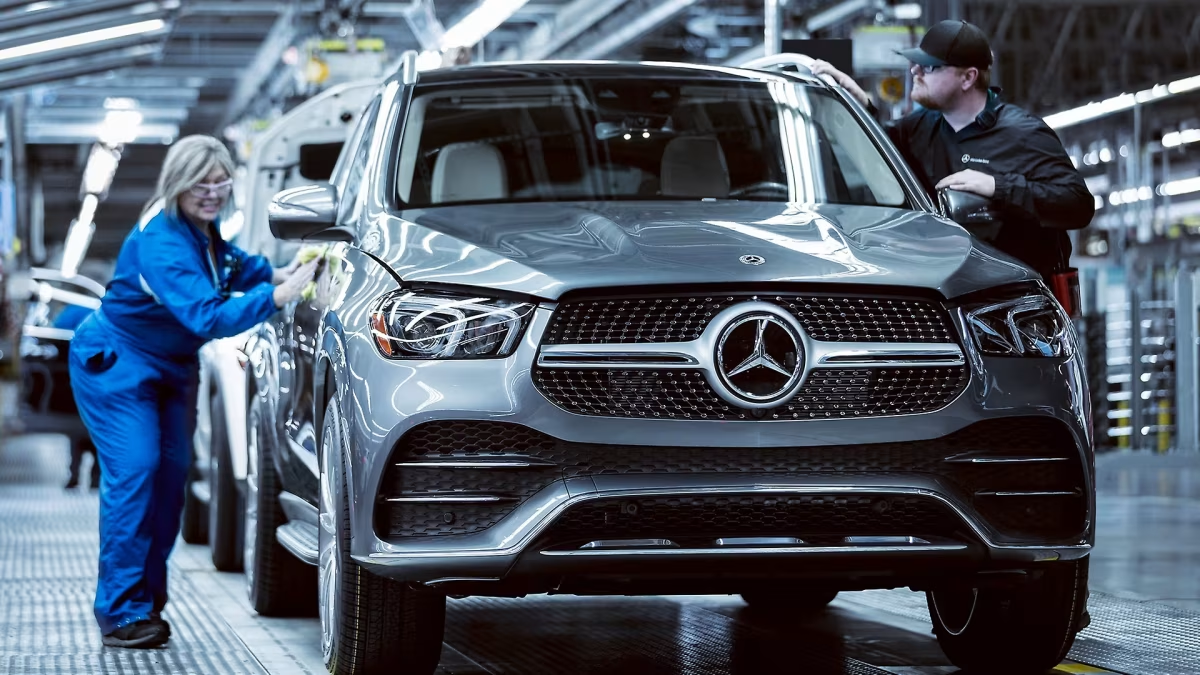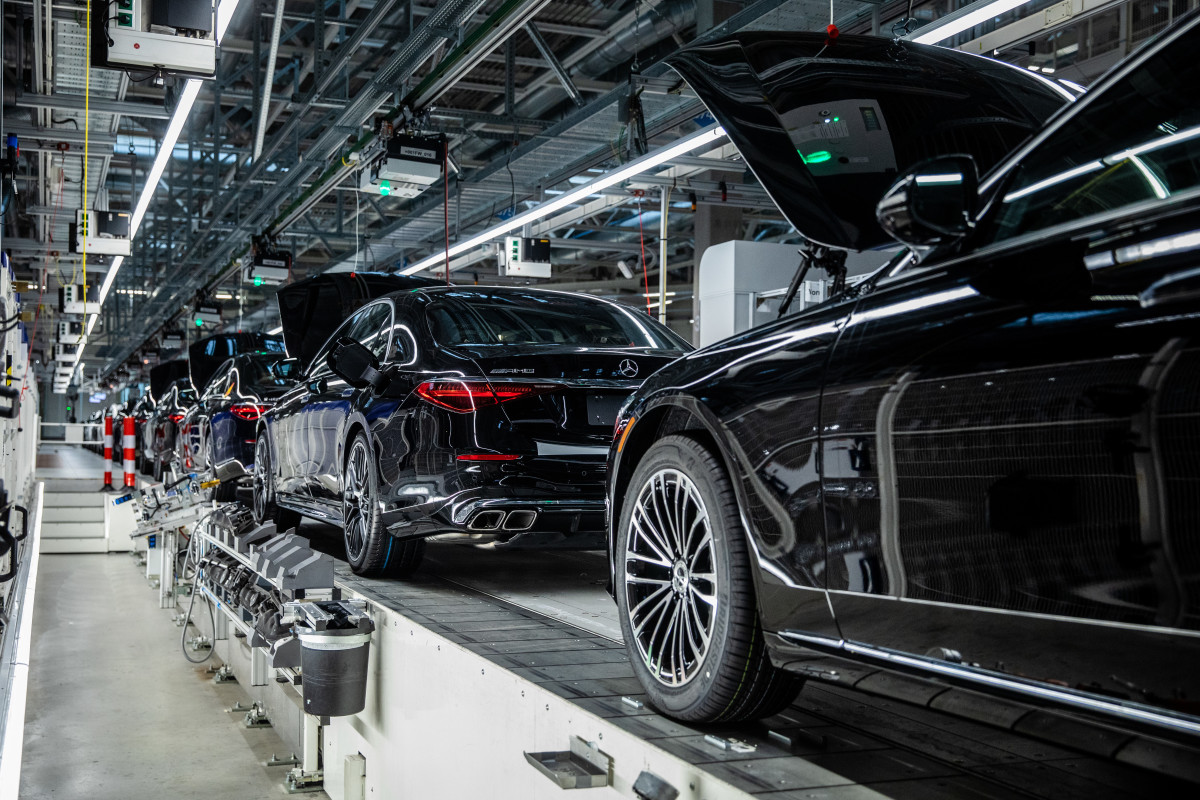
Earlier this month, President Trump and the leaders of neighboring Mexico and Canada negotiated a deal to put a one-month pause on 25% tariffs on goods originating from its cross-border neighbors—save for a 10% carveout for Canadian oil.
The penalties would have translated into higher sticker prices for new car buyers, as many US-market models, including pickup trucks made by Detroit's Big Three to family cars made by Japan's Honda (HMC) and Toyota (TM) come from factories in the Great White North, and over the border in Mexico.
💰💸 Don't miss the move: Subscribe to TheStreet's free daily newsletter 💰💸
While the levies on their imported goods have been delayed well into March, and officials from the Trump administration are negotiating solutions for issues beyond just trade, additional tariffs tacked onto critical car-building materials pose new challenges to an industry dealing with massive amounts of pressure.
However, an exec at one of the most well-known automakers in the world warns that a new threat to the auto industry can translate to a major hit to its bottom line.

Mercedes CFO: Trump's tariff increase will eat into our margins.
During Mercedes-Benz's (MBGAF) Capital Market Day Presentation on February 20, its CFO Harald Wilhelm warned that increased tariffs in the U.S. could have dire consequences for the company's bottom line if they persist.
According to a report by Automotive News, Merc's financial head noted that if tariffs on cars exported from Europe into the U.S. were increased from the current 2.5% to 10%, it would lose one percentage point of margin.
At the same presentation, the luxury automaker announced that its passenger car division's 2024 adjusted earnings before interest and taxes (EBIT) was €8.7 billion, (about $9.1 billion), for an operating margin of 8.1%, on revenue of €108 billion (~$113.2 billion).
In the theoretical scenario where Merc's operating margin dropped one percent to 7.1%, it would lose about a billion euros, or about $1.05 billion, from its EBIT.
The current administration is preparing much deeper penalties. On February 18, President Trump told reporters from his Mar-a-Lago residence in Palm Beach, Florida, that he planned to levy a 25% tariff on auto imports.
“I probably will tell you that on April 2, but it’ll be in the neighborhood of 25 percent,” the President said.
Mercedes-Benz CEO Ola Kallenius is aware that the President has proposed much stiffer tariffs. He notes that the 10% figure is an example and also suggested that negotiations between the EU and the US could result in levies that are less harsh.
"We’re preparing for all sorts of scenarios," he said.
More Automotive:
- Dodge confirms gas-powered Charger Sixpack coming this summer
- Jeep parent makes executive overhaul as it searches for new CEO
- Honda faces a massive recall over dangerous software glitch
In a statement on the investor section of its website, the Mercedes CFO noted that the automaker will be taking measures to ride out the incoming storm.
"To ensure that the company can weather an even more dynamic geopolitical environment as well as challenging markets, efficiency measures are being intensified across the board," Wilhelm said. "Paired with strong product substance and our product launch plan, Mercedes-Benz is well positioned to recalibrate its operating point and to return to double-digit margins in the near future."
To avoid possible tariffs and work around the "dynamic geopolitical environment," Mercedes said it will beef up what it calls its "local-for-local" production in markets like China and the United States, where models sold in said markets are actually made within their respective countries.
Mercedes has a goal to increase localized production from 60% to 70% by 2027, which will see another model made at its factory in Tuscaloosa, Alabama.
According to Kallenius, said vehicle will be one of Mercedes' "core" models, which may either be its C-Class or E-Class sedans. Currently, the Alabama plant makes some of the brand's bigger SUVs, which are popular among US customers, including the GLS the GLE, the GLE Coupe, as well as the EQE and EQS electric SUVs.
But despite the commitment to increasing its US footprint, he warns that such changes will not come instantly.
"Relocating a plant takes two, three, maybe four years," he said, "but we want to grow in the U.S."
Related: New rules mean big extra costs for car buyers
Mercedes-Benz's adjustments come as it reported lower earnings, as well as a 40% dip in its automotive division due to lower sales in its key Chinese and German markets. In the year ahead, the luxury automaker expects its 8.1% operating margin in the car division to drop as low as 6%.
However, Mercedes is far from the lone automaker sounding the alarm for the industry amid the President's trade talks.
Notably, Ford CEO Jim Farley on February 11, noted that Trump's recent moves, including deflected tariffs on Mexican and Canadian imports is giving more headaches than relief to automakers
"President Trump has talked a lot about making our U.S. auto industry stronger, bringing more production here, more innovation to the U.S., and if this administration can achieve that, it would be, I think, one of the most signature accomplishments," Farley said. "So far, what we’re seeing is a lot of cost and a lot of chaos."
At a conference hosted by Barclays on February 19, General Motors CFO Paul Jacobson noted that the automaker will have to move plants if tariffs persist. However, he warned that constantly allocating and moving its plants to accommodate constant tariff levying and cutting and other political trade moves will lead to more costs for the automaker down the line.
“Those are questions that just don’t have an answer today,” he said. “As much as the market is pricing in a big impact of tariffs and lost profitability, think about a world where we’re spending billions in capital, and then it ends. We can’t be whipsawing the business back and forth.”
The Mercedes-Benz Group is traded on OTC markets in the United States as MBGAF and on the Frankfurt Stock Exchange as MBG.
Related: Veteran fund manager issues dire S&P 500 warning for 2025







